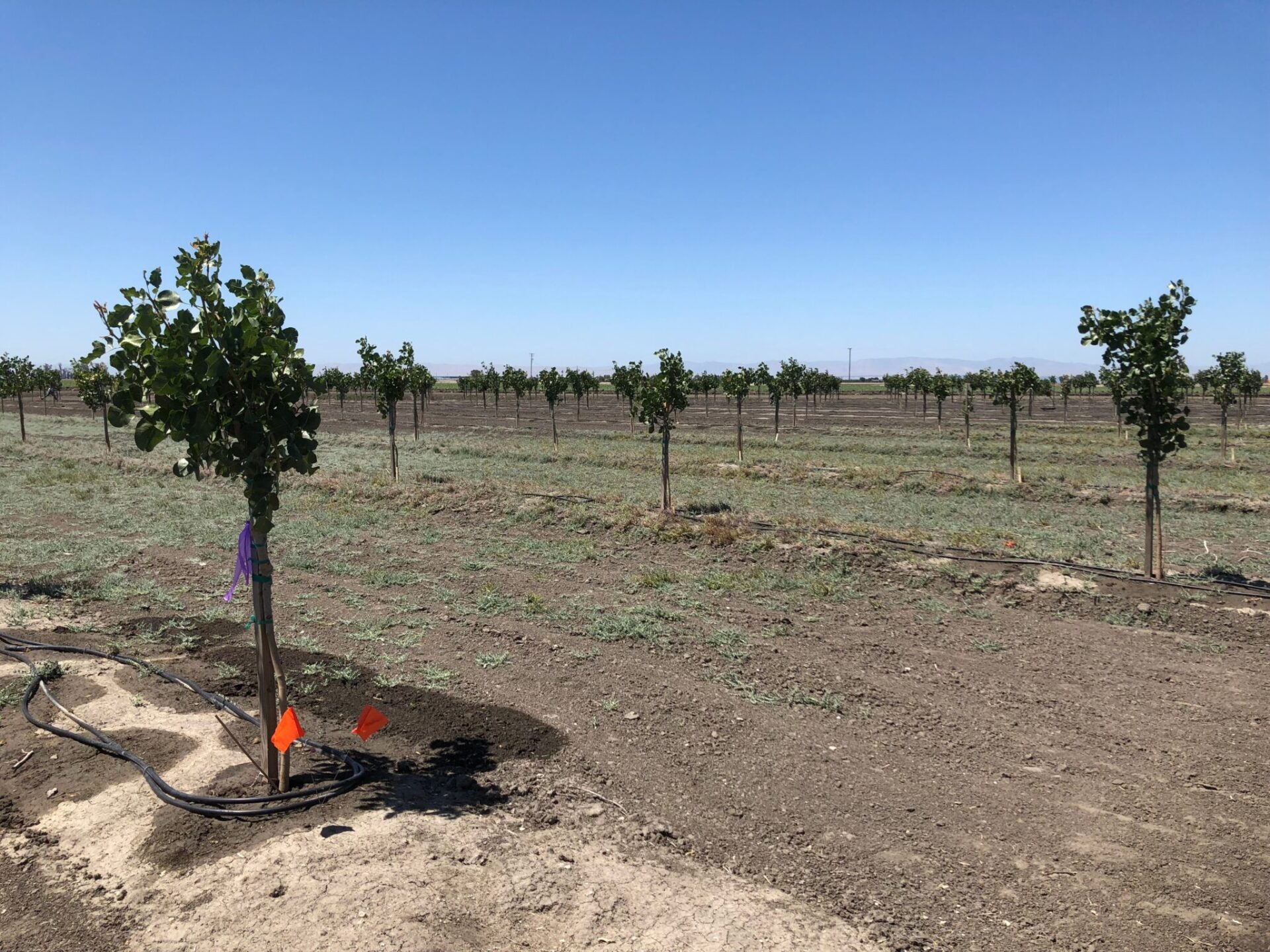
Newly planted pistachio orchards on the west side of the San Joaquin Valley in the Stratford, Lemoore areas have become infested with aggressive and invasive alkali weed.
This native, perennial weed in the field bindweed and dodder family is spreading from low lying saline or alkaline soils into irrigation ditches and orchards according to a former UC Davis plant sciences graduate student who studied it for two years.
James Schaeffer, who is now with Helena Ag Enterprises, initiated a survey of growers to determine spread of alkali weed and has documented a dozen sites where the weed has become established.
Alkali weed, Schaeffer reports, has problematic attributes in young orchards, but he has not documented any adverse effect in orchards where it has become established.
“There is no research to support that alkali weed competes for water and nutrients in orchards,” he said. On the other hand, it is a big, ugly weed and growers do not like to see it growing on their orchard floors, he added.
The first signs of an alkali weed (Cressa truxillensis) infestation will occur in March and by the end of May, the plants produce flowers and seed. This weed grows all summer and into December in warmer areas. Alkali weed produces a woody crown and has a deep taproot that can reach down 24-36 inches. It grows along the ground and up to a foot in height. Alkali weed has greyish to green leaves that are covered with numerous soft and silky hairs.
There is no ‘best” time for control, Schaeffer said, as no herbicide has been known to stop its aggressive growth.
“Herbicides will burn it back, shut it down temporarily, but it grows back,” he said. Mechanical removal has not been successful.
Growers responding to his survey report that alkali weed infestations generally start in a corner of an orchard or field and spread. This weed is shade intolerant, salt-tolerant and drought resistant. Schaeffer said alkali weed does not interfere with drip emitters or microsprinklers and there is no evidence it supports protection for vertebrate pests. It is not known to host beneficial or predator insects.
Being salt and drought tolerant may be potential attributes. Shaeffer said it might be possible that alkali weed could be used as a ground cover.
















